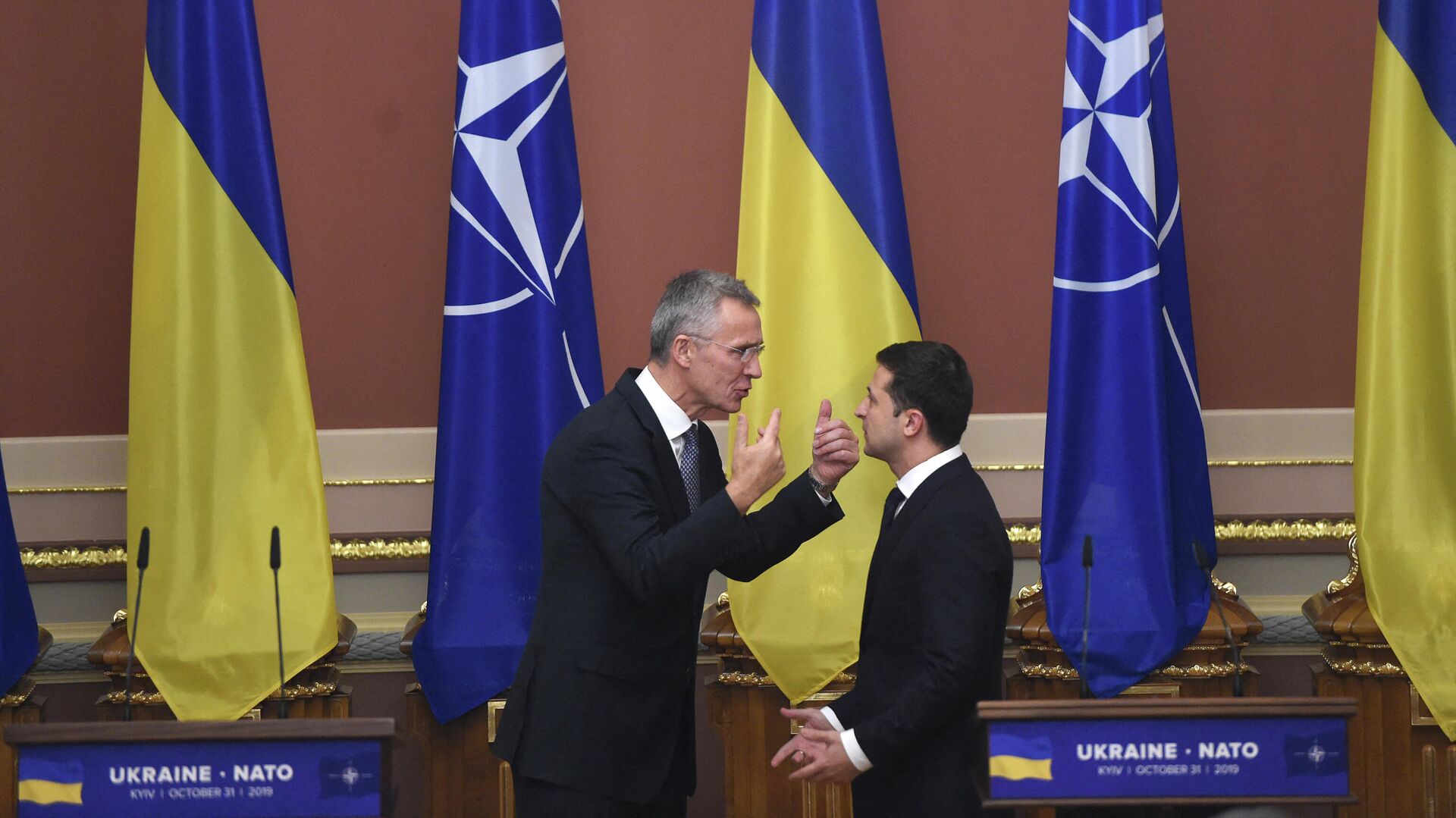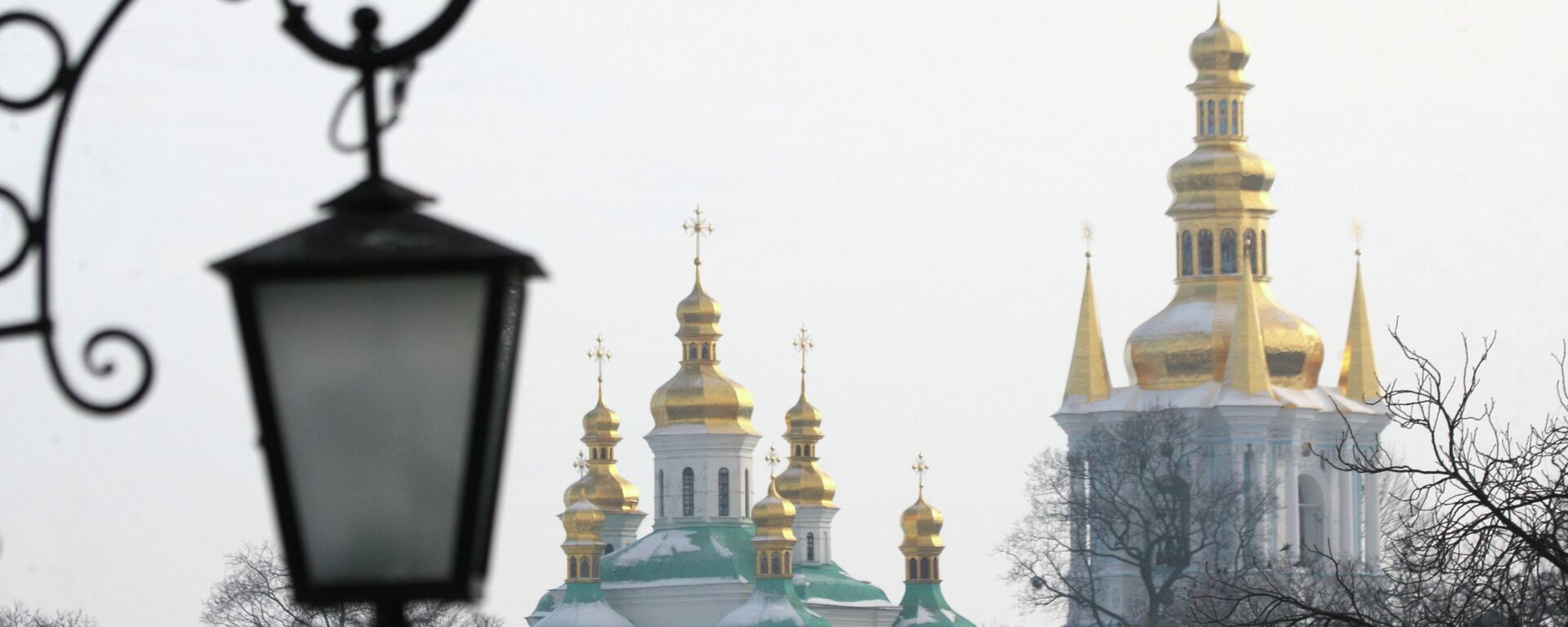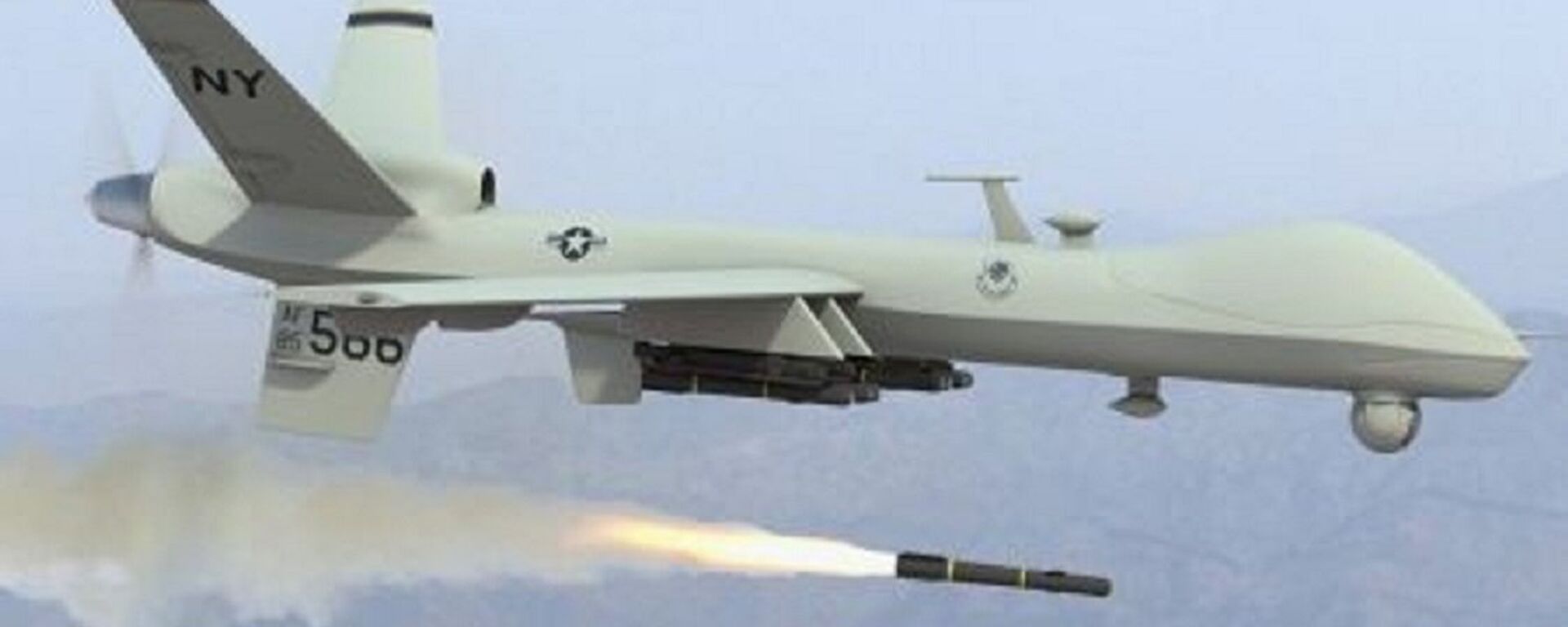https://sputnikglobe.com/20230520/pledge-of-nato-membership-for-kiev-would-confirm-russias-warnings-about-blocs-aggressive-posture-1110490624.html
Pledge of NATO Membership for Kiev Would Confirm Russia’s Warnings About Bloc’s Aggressive Posture
Pledge of NATO Membership for Kiev Would Confirm Russia’s Warnings About Bloc’s Aggressive Posture
Sputnik International
The prospect of Ukrainian membership in the Western alliance has been a dream of US policymakers from both parties since the 2008 NATO Summit in Bucharest, serving as a capstone to decades of aggressive eastward expansion by the alliance. It’s also one of the central reasons behind the ongoing NATO-Russia proxy war in Ukraine.
2023-05-20T18:57+0000
2023-05-20T18:57+0000
2023-05-20T19:14+0000
vladimir putin
ukraine
russia
nato
atlantic council
us
expansion
nato expansion
military
https://cdn1.img.sputnikglobe.com/img/07e5/0c/10/1091567690_0:317:3076:2047_1920x0_80_0_0_b97764c87e048874ee353d3715cf0168.jpg
Giving Kiev any sort of commitment on future NATO membership at the alliance’s upcoming Vilnius Summit would be a terrible idea, undermining Ukraine’s security and resulting in Moscow doubling down on its special military operation, John R. Deni, a senior fellow at the Atlantic Council*, a top Washington-based neoconservative think tank, has suggested.Doing so would also run counter to the alliance’s long-standing rules on membership – which require an absence of unresolved internal conflicts or border disputes with neighbors among candidate countries.A commitment to membership would also serve to “play into” Moscow’s very public warnings about the alliance using Ukraine as a jumping off point for further aggression against Russia, Deni wrote, while disingenuously dubbing these Russian concerns as “Putin’s misinformation campaign.”“Placing Ukraine on a speedier, clearer road to membership in NATO turns Putin’s propaganda into prophecy,” the observer suggested, without elaborating how two-and-a-half decades of NATO expansion and the rejection of a pair of comprehensive Russian security treaty proposals presented in late 2021 which would have facilitated Ukrainian neutrality constitutes “propaganda.”Instead of offering Kiev such a formal commitment, NATO should “focus on how allies – especially those in Europe,” can “significantly ramp up production of, delivery of, and training on advanced military platforms from the West and its allies” to counter Russian advantages in manpower and material, the think tank researcher believes.Deni’s advice is novel in the sense that it comes from one of the top Washington-based international affairs think tanks whose policy advice helped bring about the crisis in Ukraine in the first place.Anti-war voices across the political spectrum in the US have offered their own reasons for rejecting NATO membership for Ukraine, citing, among other things, the risks of the crisis escalating into a global thermonuclear war. In an interview with Polish media this week, veteran US economist and public policy analyst Geoffrey Sachs said that Washington’s “arrogant” refusal to account for Russian national security interests and address Moscow’s concerns about NATO expansion were big contributors to the present conflict, in which Ukrainian forces are fighting Russia using Western-provided weaponry.Last week, renowned international relations scholar Dr. Joseph M. Siracusa told Sputnik about the NATO security establishment’s plans to continue trying to expand the alliance without any regard for Russia’s interests. The current crisis was caused by a failure of diplomacy, and is continuing due to the “delusional” expectations by Western policy elites about Kiev's ability to inflict a defeat on Russia, Siracusa said.Senior Russian officials from President Putin to Foreign Minister Sergey Lavrov have warned repeatedly that Ukrainian NATO membership is a bright ‘red line’ that Russia would never accept being crossed.In late 2021, amid the flurry of back-and-forth diplomatic communications with Washington and Brussels following the publication of Russia’s security proposals, Putin said candidly that red lines in Ukraine were about the absence of any room for strategic maneuver that they would leave for Russia. NATO will “put missile systems in Ukraine, 4-5 minutes flight time to Moscow…They have simply driven us to such a state that we have to tell them: stop,” Putin said at the time.* Listed by the Russian Prosecutor General's Office as an undesirable entity.
https://sputnikglobe.com/20230410/ukrainian-orthodox-church-parishioners-defend-alexander-nevsky-cathedral-from-kievs-henchmen-1109322411.html
https://sputnikglobe.com/20230516/us-nato-trying-to-turn-central-asian-into-foothold-to-threaten-russia-1110394510.html
ukraine
russia
Sputnik International
feedback@sputniknews.com
+74956456601
MIA „Rossiya Segodnya“
2023
News
en_EN
Sputnik International
feedback@sputniknews.com
+74956456601
MIA „Rossiya Segodnya“
Sputnik International
feedback@sputniknews.com
+74956456601
MIA „Rossiya Segodnya“
nato, ukraine, expansion, russia, united states, moscow, kiev, summit
nato, ukraine, expansion, russia, united states, moscow, kiev, summit
Pledge of NATO Membership for Kiev Would Confirm Russia’s Warnings About Bloc’s Aggressive Posture
18:57 GMT 20.05.2023 (Updated: 19:14 GMT 20.05.2023) The question of Ukrainian membership in the Western alliance has been bandied about by US officials from both major parties since the 2008 NATO Summit in Bucharest, serving as a potential capstone to decades of aggressive eastward expansion by the military bloc. It’s also one of the key causes behind the ongoing NATO-Russia proxy war in Ukraine.
Giving Kiev any sort of commitment on future NATO membership at the alliance’s upcoming Vilnius Summit would be a terrible idea, undermining Ukraine’s security and resulting in Moscow doubling down on its special military operation, John R. Deni, a senior fellow at the Atlantic Council*, a top Washington-based
neoconservative think tank, has suggested.
In a recent op-ed for a major international affairs magazine, Deni, who is also a professor at the US Army War College’s Strategic Studies Institute, warned that ‘laying a path for Ukrainian membership in NATO’ would almost certainly “worsen Ukraine’s security in the short run,” prolonging and escalating the crisis.
Doing so would also run counter to the alliance’s long-standing rules on membership – which require an absence of unresolved internal conflicts or border disputes with neighbors among candidate countries.
A commitment to membership would also serve to “play into” Moscow’s very public warnings about the alliance using Ukraine as a jumping off point for further aggression against Russia, Deni wrote, while disingenuously dubbing these Russian concerns as “Putin’s misinformation campaign.”
“Placing Ukraine on a speedier, clearer road to membership in NATO turns Putin’s propaganda into prophecy,” the observer suggested, without elaborating how two-and-a-half decades of NATO expansion and the rejection of a pair of
comprehensive Russian security treaty proposals presented in late 2021 which would have facilitated Ukrainian neutrality constitutes “propaganda.”
Ukraine is also “not ready politically” for NATO membership, according to Deni, with the country failing to meet the alliance’s self-proclaimed liberal democratic standards, particularly following the “crackdown on civil liberties” observed over the past year.
Instead of offering Kiev such a formal commitment, NATO should “focus on how allies – especially those in Europe,” can “significantly ramp up production of, delivery of, and training on advanced military platforms from the West and its allies” to counter Russian advantages in manpower and material, the think tank researcher believes.
Deni’s advice is novel in the sense that it comes from one of the top Washington-based international affairs think tanks whose policy advice helped bring about the crisis in Ukraine in the first place.
Anti-war voices across the political spectrum in the US have offered their own reasons for rejecting NATO membership for Ukraine, citing, among other things, the risks of the crisis
escalating into a global thermonuclear war. In an interview with Polish media this week, veteran US economist and public policy analyst Geoffrey Sachs
said that Washington’s “arrogant” refusal to account for Russian national security interests and address Moscow’s concerns about NATO expansion were big contributors to the present conflict, in which Ukrainian forces are fighting Russia using Western-provided weaponry.
“Russia will never accept Ukrainian membership in NATO. It will either defeat Ukraine on the battlefield or continue a long, exhausting war,” Sachs warned. “Overall, there is no realistic path to Ukraine’s membership in NATO,” the academic stressed.
Last week, renowned international relations scholar Dr. Joseph M. Siracusa
told Sputnik about the NATO security establishment’s plans to continue trying to expand the alliance without any regard for Russia’s interests. The current crisis was caused by a failure of diplomacy, and is continuing due to the “delusional” expectations by Western policy elites about Kiev's ability to inflict a defeat on Russia, Siracusa said.
Senior Russian officials from President Putin to Foreign Minister Sergey Lavrov have warned repeatedly that Ukrainian NATO membership is a bright ‘red line’ that Russia would never accept being crossed.
In late 2021, amid the flurry of back-and-forth diplomatic communications with Washington and Brussels following the publication of Russia’s security proposals, Putin said candidly that red lines in Ukraine were about the absence of any room for strategic maneuver that they would leave for Russia. NATO will “put missile systems in Ukraine, 4-5 minutes flight time to Moscow…They have simply driven us to such a state that we have to tell them: stop,” Putin
said at the time.
* Listed by the Russian Prosecutor General's Office as an undesirable entity.




